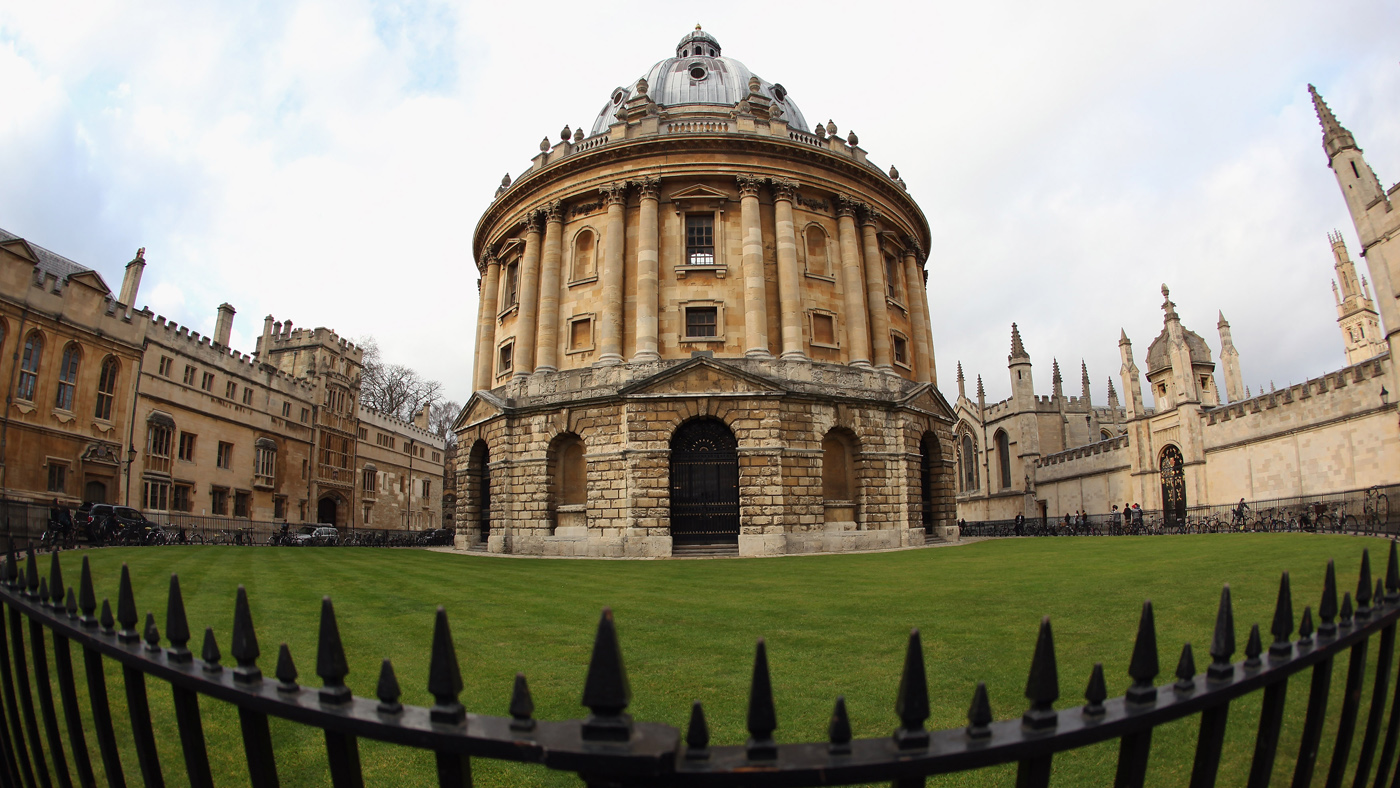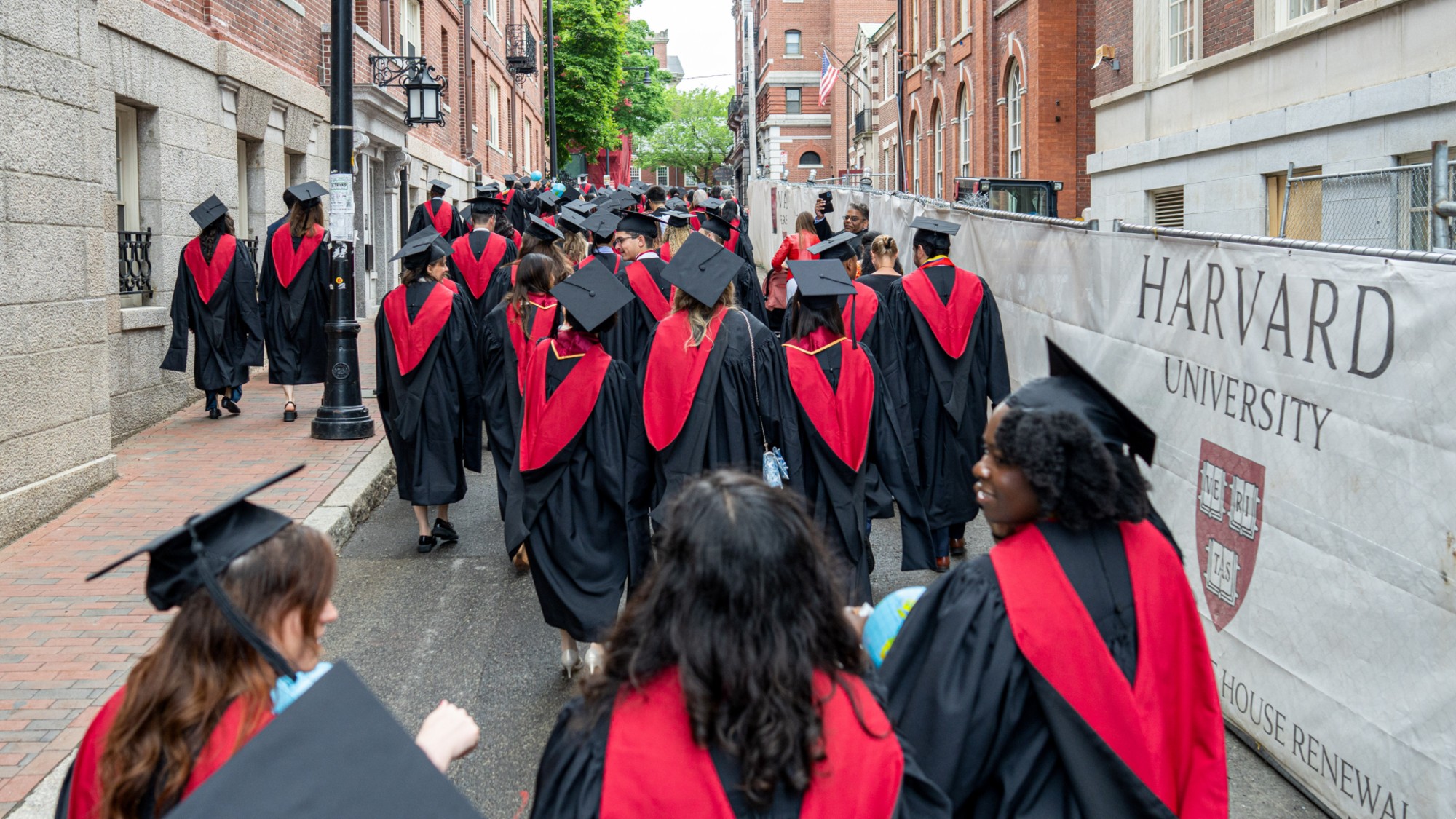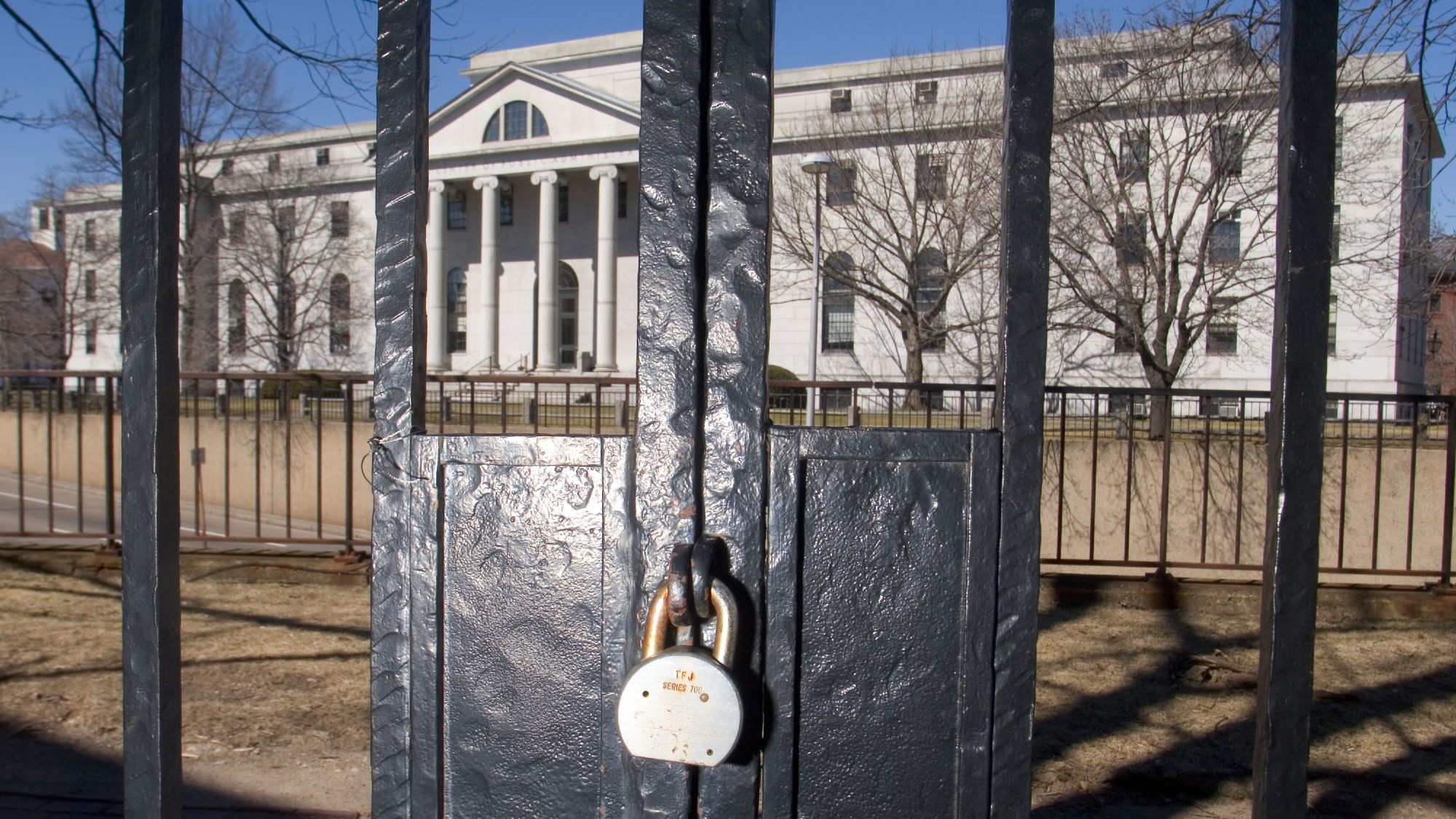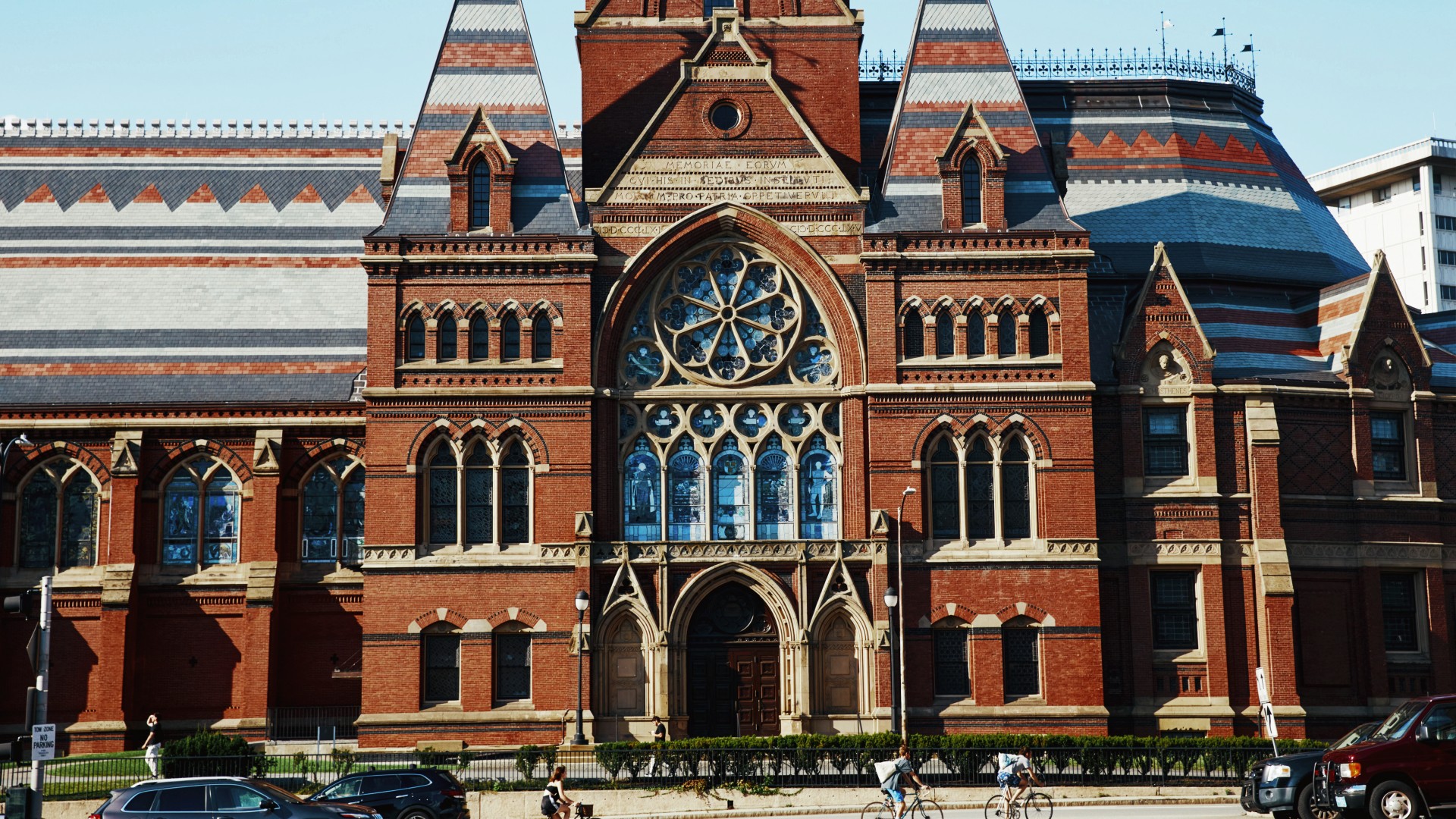How Oxford University’s ‘sea change’ in admissions will work
Two new schemes designed to boost proportion of underprivileged new students to 25% by 2023

A free daily email with the biggest news stories of the day – and the best features from TheWeek.com
You are now subscribed
Your newsletter sign-up was successful
The University of Oxford is to offer places to students from disadvantaged backgrounds who fail to get the required A-level grades under new plans aimed at boosting diversity.
The famous university has faced mounting allegations of social exclusivity, with around 40% of places going to pupils from private schools in recent years, while just 15% of undergraduate students are from deprived areas, the BBC reports.
Now, Oxford bosses are promising a “sea change” in admissions, with the launch of two new schemes designed to boost the proportion of disadvantaged students to 25% over the next four years.
The Week
Escape your echo chamber. Get the facts behind the news, plus analysis from multiple perspectives.

Sign up for The Week's Free Newsletters
From our morning news briefing to a weekly Good News Newsletter, get the best of The Week delivered directly to your inbox.
From our morning news briefing to a weekly Good News Newsletter, get the best of The Week delivered directly to your inbox.
Under the schemes, places will be offered to “clever pupils who would otherwise struggle to meet the final entry requirements because of their demographic, or who need help in making the transition to life at one of the highest-rated institutions in the country”, says Sky News.
How will the schemes work?
The historic institution will offer two free programmes to help disadvantaged students - Opportunity Oxford and Foundation Oxford.
From 2020, Opportunity Oxford will provide support each year for around 200 students from disadvantaged socio-economic backgrounds who have applied in the normal way and are on course to gain the required grades but who “need help to make the jump from school”, reports Sky News.
A free daily email with the biggest news stories of the day – and the best features from TheWeek.com
The targeted applicants will get support for “structured study at home and then two weeks of residential study at the university ahead of the new term”.
Foundation Oxford will be a full-year programme open to students who have experienced severe disadvantages, such as refugees or young carers, and are not set to meet the requred grades.
Around 50 students will be eligible to receive offers “made on the basis of lower contextual A-level grades, rather than the university’s standard offers”, reports The Daily Telegraph. Typical offers from the university “usually range between A*A*A and AAA depending on the subject”, but those studying under the new scheme could be accepted with grades as low as ABB.
This scheme will run from 2021 and will cost the university around £20,000 per student, according to The Guardian, which says Cambridge University has announced plans to launch a similar programme.
Who will qualify?
Although most charities and commentators have welcomed the schemes, critics point out that the admissions are “mainly based on a socio-economic profile of where people live” rather than “income thresholds or ethnicity”, reports the BBC.
The schemes will use a postcode-based system called Polar, which measures local levels of deprivation or affluence by counting the number of university entries from people living in that area.
The broadcaster notes that this means “a very poor area with relatively high levels of university entry, such as in some parts of London, might not appear to be disadvantaged”.
Critics also note that some demographics - such as white working-class boys - are far less likely to even consider applying to university, a problem that the schemes do not address.
Responding to such concerns, university vice-chancellor Professor Louise Richardson acknowledged that Oxford “may be disappointing slightly different people under this initiative” but added that “those we will be disappointing will not have higher grades than those we let in”.
Sir Peter Lampl, founder and chair of social mobility charity the Sutton Trust, said: “It’s great to see Oxford looking to new solutions to tackle the problem of how to support students from under-represented backgrounds. The scale of these programmes is really impressive.”
-
 Political cartoons for February 16
Political cartoons for February 16Cartoons Monday’s political cartoons include President's Day, a valentine from the Epstein files, and more
-
 Regent Hong Kong: a tranquil haven with a prime waterfront spot
Regent Hong Kong: a tranquil haven with a prime waterfront spotThe Week Recommends The trendy hotel recently underwent an extensive two-year revamp
-
 The problem with diagnosing profound autism
The problem with diagnosing profound autismThe Explainer Experts are reconsidering the idea of autism as a spectrum, which could impact diagnoses and policy making for the condition
-
 American universities are losing ground to their foreign counterparts
American universities are losing ground to their foreign counterpartsThe Explainer While Harvard is still near the top, other colleges have slipped
-
 Where will international students go if not the US?
Where will international students go if not the US?Talking Points China, Canada and the UK are ready to educate the world
-
 Colleges are canceling affinity graduations amid DEI attacks but students are pressing on
Colleges are canceling affinity graduations amid DEI attacks but students are pressing onIn the Spotlight The commencement at Harvard University was in the news, but other colleges are also taking action
-
 Can Trump ban overseas students from US universities?
Can Trump ban overseas students from US universities?Today's Big Question President's decision to revoke Harvard's access to database for admitting international students 'drastically escalates' the dispute
-
 America's academic brain drain has begun
America's academic brain drain has begunIN THE SPOTLIGHT As the Trump administration targets universities and teachers, educators are eying greener academic pastures elsewhere — and other nations are starting to take notice
-
 Is academic freedom in peril?
Is academic freedom in peril?Today's Big Question Faculty punishments are on the rise
-
 Anti-Israel protests impact a Jewish-rooted university
Anti-Israel protests impact a Jewish-rooted universityThe Explainer The president of Brandeis University resigned as a result of multiple factors, including his handling of recent protests
-
 College admissions data reveals early effects of affirmative action's end
College admissions data reveals early effects of affirmative action's endIn the Spotlight A sneak peek at how the Supreme Court's decision has panned out